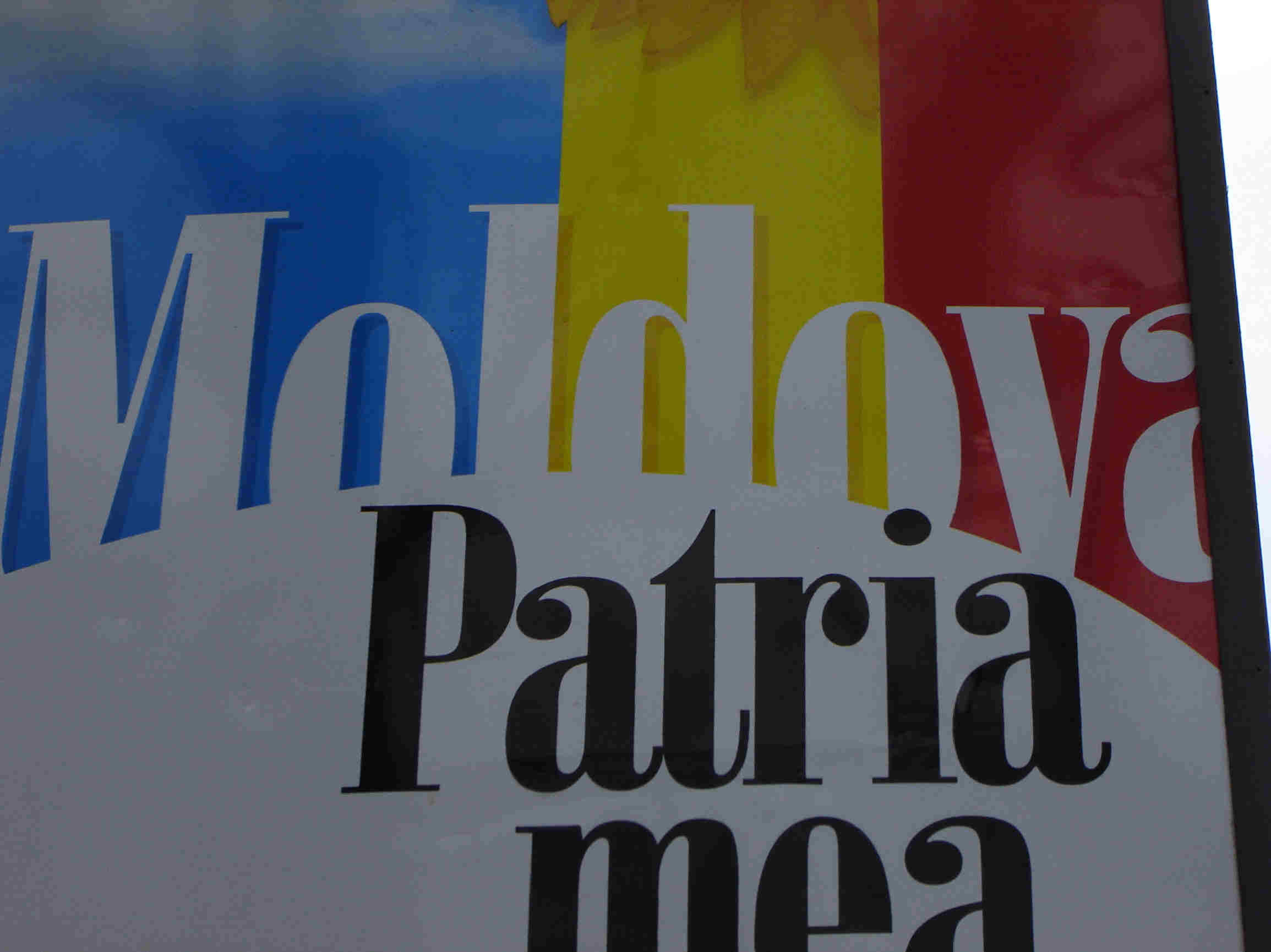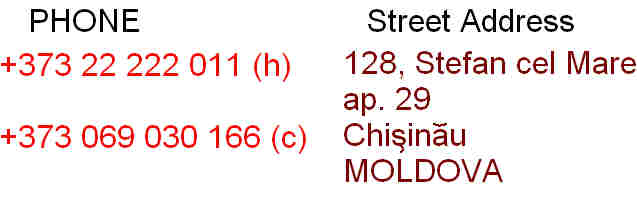16 April...Limba Mea...I seem to be bi-lingual,
finally! My first language is something like English (with a
Southern U.S. accent) and the second is a very interesting combination
of 40% Romanian words pronounced as in Spanish with about 30% actual
Spanish words added in with a smattering of additional words borrowed
from French, English, and Russian and spoken using English grammar
rules--its a little like Esperanto and I call it--Limba Mea (my
language in Romanian). No wonder the people here roll their eyes
at the "strange" man that babbles on in a weird language and
then expects people to
understand him. Incidentally, the same word is used for both
"strange" and "foreign" in Romanian.Language is, of course, a
learning experience and in Moldova you have so many opportunities for
experience. My television--that is used primarily as a clothes
dryer--has programming in Romanian, Russian, Bulgarian, Ukrainian,
Georgian, English, and French as well as Spanish soap-operas with
Romanian subtitles. I know I have written earlier about language
but the longer I stay here, the more I learn. Not only how to speak but
in impacts of culture and politics that language brings--it is as much a powerful a social
tool here as race is in my hometown. I used to be so impressed when I
walked in the main park (Stefan cel Mare) that there were all these
statues honoring authors--not military heroes but authors. I
thought "how wonderful, that people honor writers and not warriors."
One day it occurred to me that all of the statues, save one, were to
Romanian authors and that most had never even set foot in what is now
Moldova--then I realized these statues were as much a political
statement as any statue honoring a general. The lone Russian
honored in the park is Aleksandr Pushkin (my cat is named for him) who
lived in Chisinau for two years in the early 1800s. Pushkin called
this time his exile but he traveled with a diplomatic passport--so it
may have been a nice exile (after all the Czars sent many to Siberia).
Pushkin was part African as his great-grandfather was brought to Peter
the Great as a slave then was freed, made a noble, married, and had
children under his wife's surname--Pushkin.
Even the ubiquitous Stefan cel Mare himself is a symbol of
Romania--though he was in this area during his time. All of these
symbols are a part of cultural struggle that has frustrated Moldovans
since their independence 16 years ago. In the Soviet Union,
Russian was so strongly forced upon people that once independence came,
there was language backlash and Romanian was emphasized at the expense
of other languages.
Romanian is also known here as Limba de Stat (the state
language) and is the language of all official business; although, the
Moldovan constitution establishes a multi-lingual state. When I
first arrived I thought it was charming that Romanian speakers would
compliment my language ability by saying "we have had people that have
lived here for 50 years that do not speak our language as well as you
do." Now I realize that there is a political statement therein.
The national anthem of Moldova is Limba Noastra--"Our Language"
in Romanian. Only about 60% of people here would see Romanian as
their first language--so this is a slightly volatile issue, to say the
least. I agree that Russian-native speakers ought to learn
Limba de Stat, I am not sure that the tactics being emplyed
encourage that outcome. Romanian-phobia is a powerful tool that
was used in Transnistria to encourage separatism and it is an excuse
used by the Russian government to keep their armies in the region.
Now with the Russian refusal to import Moldovan wine, the tensions are
rising once again. Someone said to me this week that the new
border of Europe will be the Nister River with NATO/U.S. forces on this
side with Russians peering across the river at them...not sure I buy it.
Keep in mind, however, that there was bloodshed 15 years ago and that
language and culture were used as the rhetoric to motivate people to
fight.
Speaking of the Nister River, my student, Costia has invited me to
his village on the Nister (hopefully no Russian soldiers will be staring
me down) to celebrate his having gotten a work visa to come to the U.S.
this summer. Costia and his friend, Sergei, will spend four months
in Panama City, Florida--working and then have a month to travel.
I have already invited them to Macon and I am hoping my Fall Break from
Mercer will allow me to drive them up the Eastern seaboard some.
If anyone would like to host the boys for a few days in late
September/early October--let me know--they will be on tight budgets but
I am thrilled to know that they are able to come and I know their
English will improve greatly--they both speak 4 languages!
I was invited to a student skit competition where the perils of
work-travel in the states was used to great effect in one of the
performances (where the boy lost his shirt trying to make ends
meet)...it was funny, but in general, it is a great opportunity for the
students here--allowing them to work summer jobs and then travel a
little. The downside is that they are out of school for two
additional months--not making administrators very happy. But it
makes me happy because I will enjoy returning some of the hospitality
that I have received.
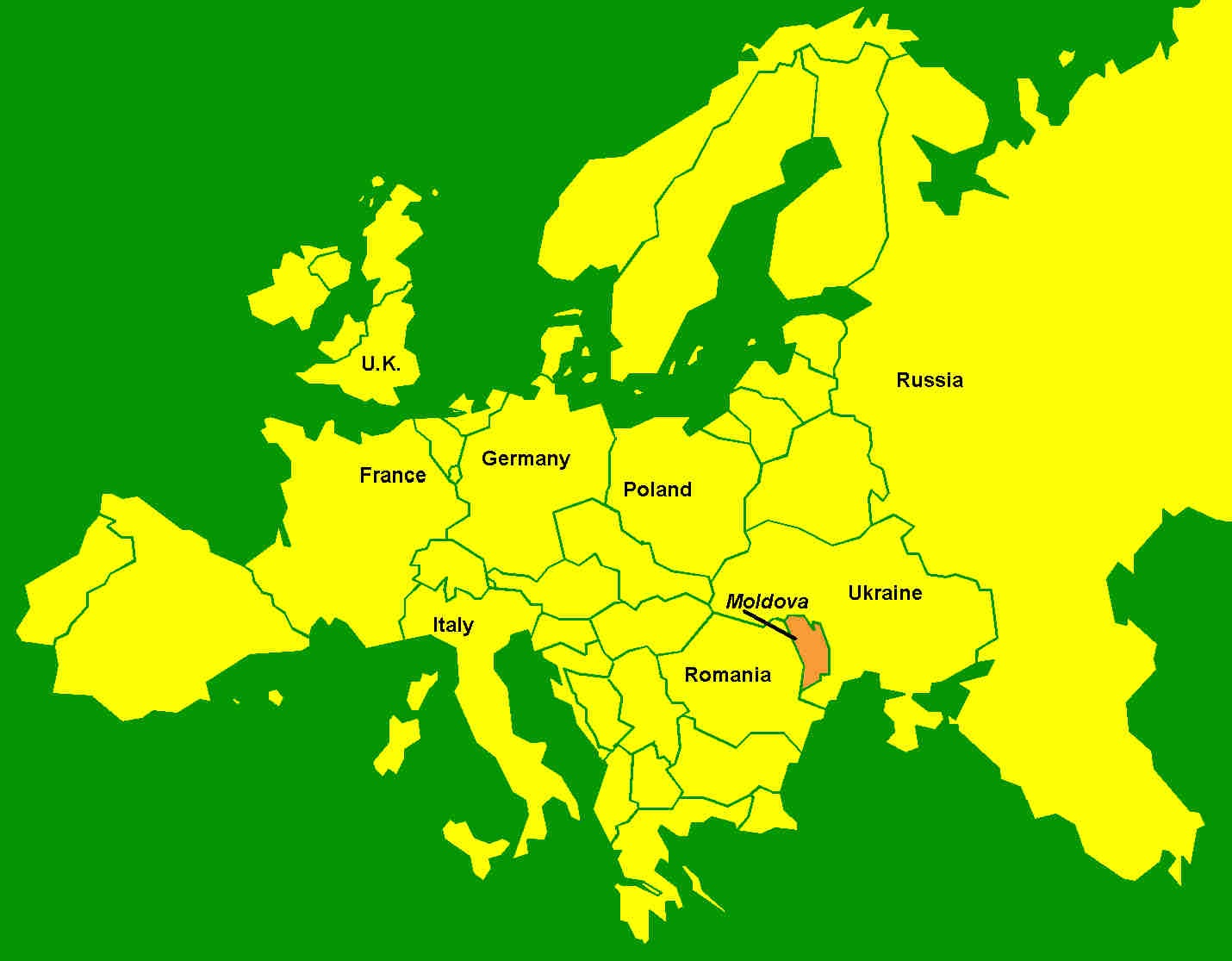
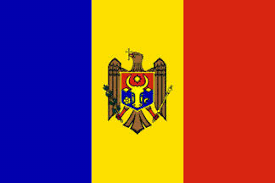
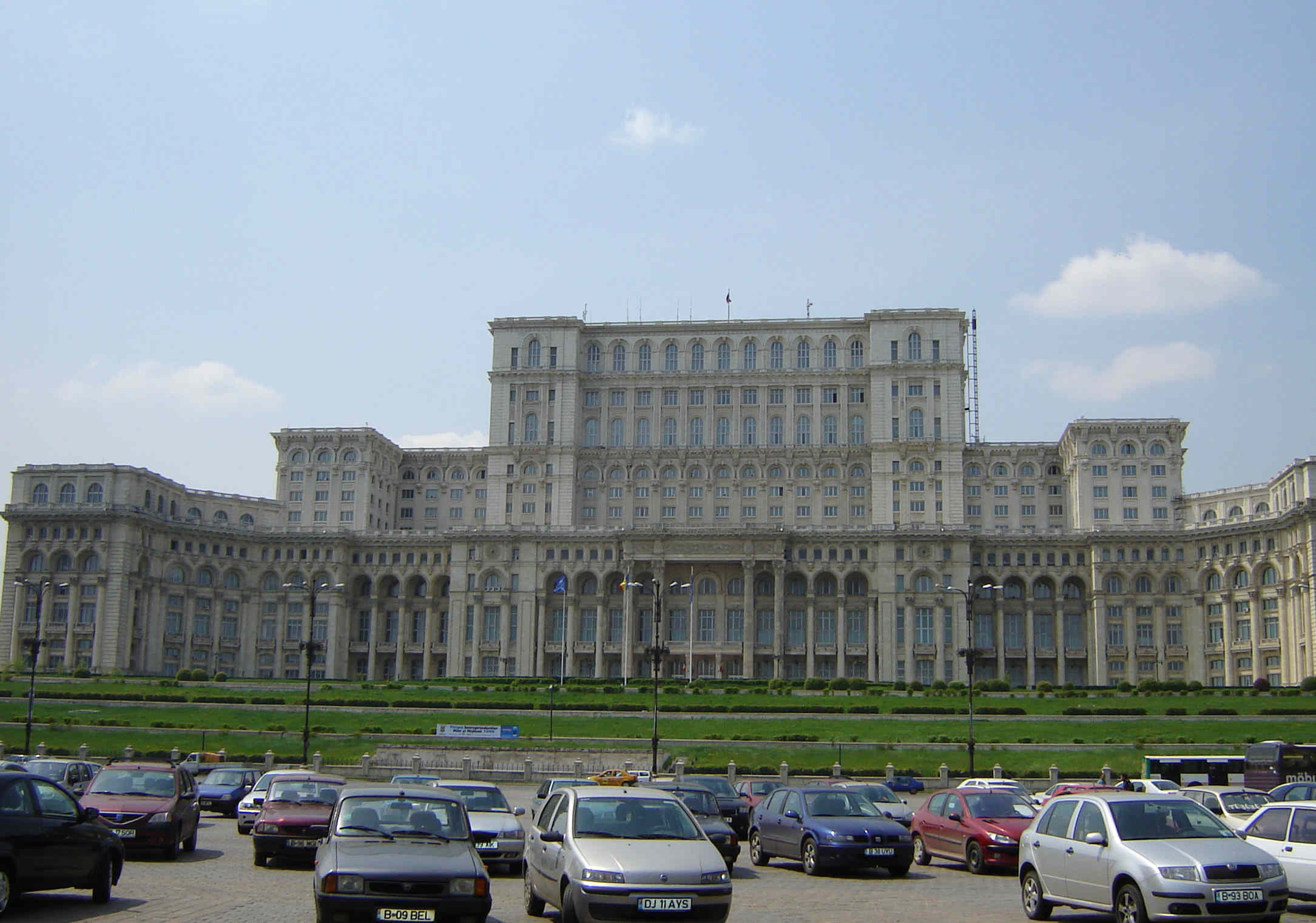 The Palace of the Parliament
(also known as the People's House) was built in the Ceausescu regime and
is the second largest building in the world (in sq. ft.)
The Palace of the Parliament
(also known as the People's House) was built in the Ceausescu regime and
is the second largest building in the world (in sq. ft.)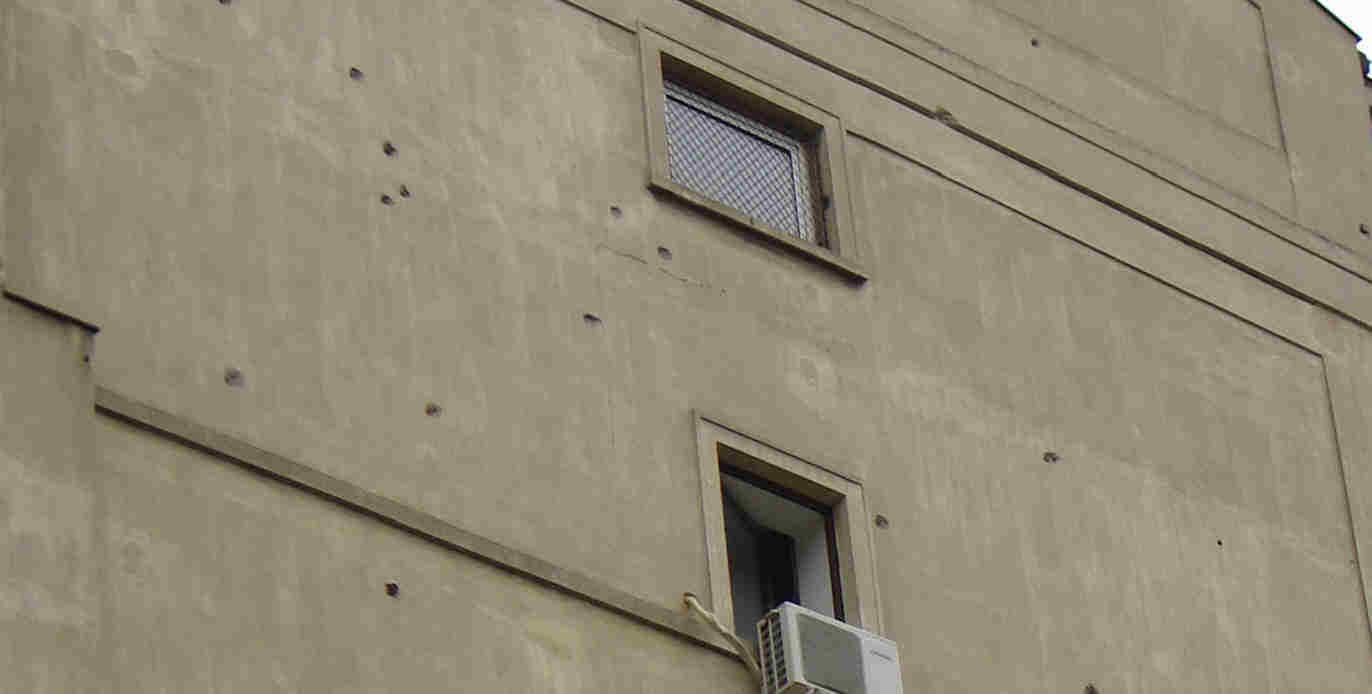 The Bullet holes left in a building near the Piata Universitatii remind
us that the overthrow of Communist dictators wasn't always peacable.
The Bullet holes left in a building near the Piata Universitatii remind
us that the overthrow of Communist dictators wasn't always peacable.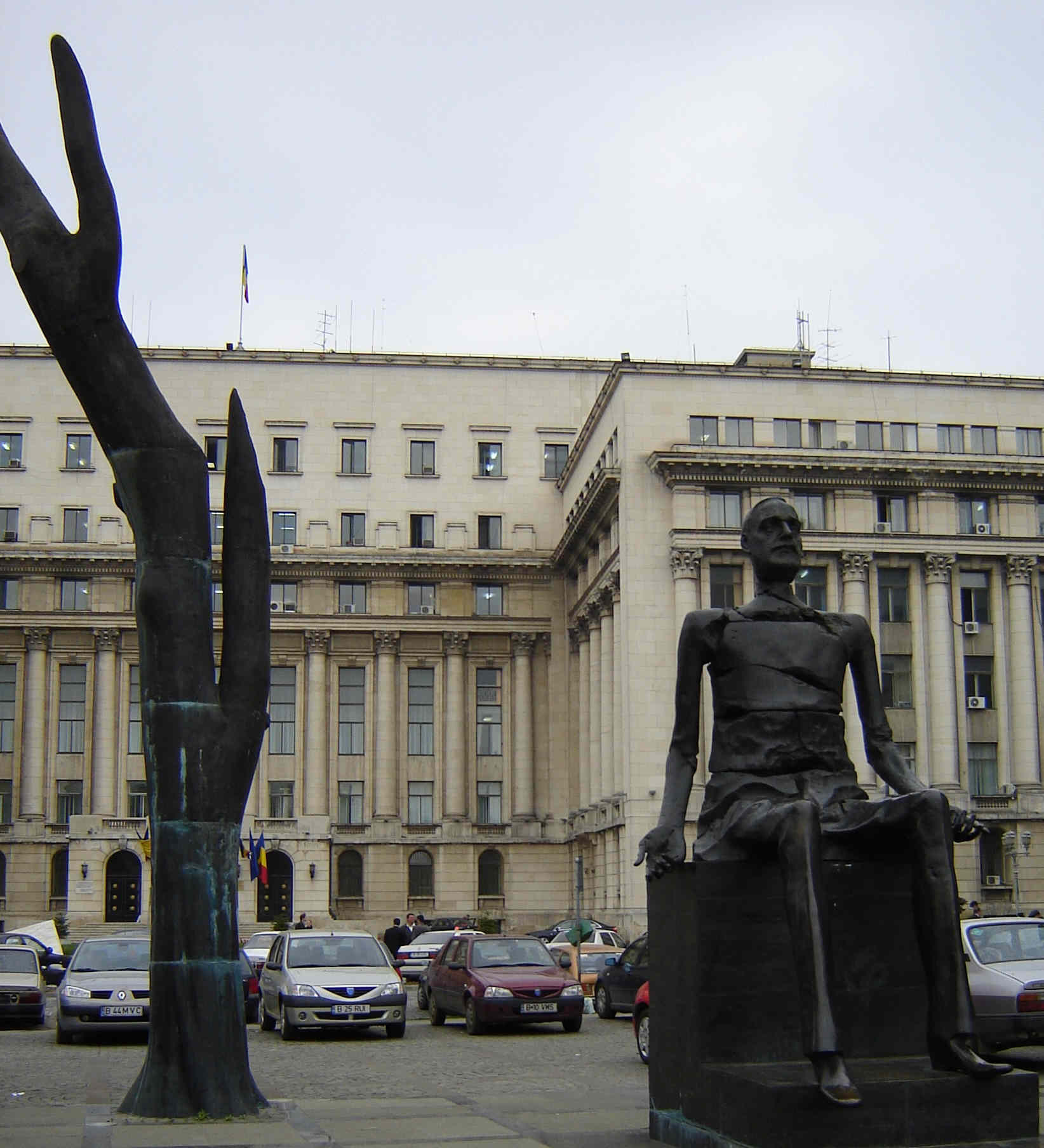
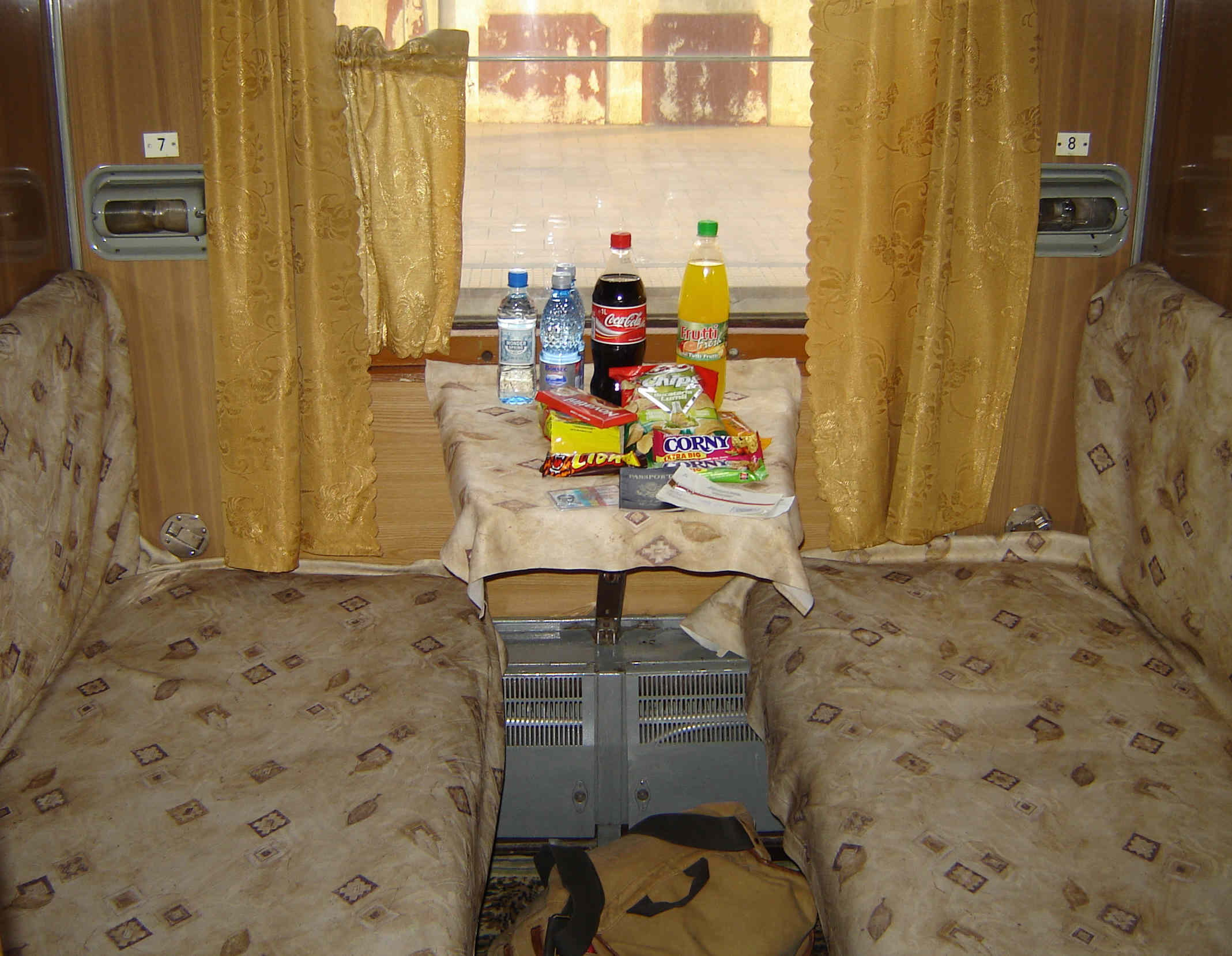
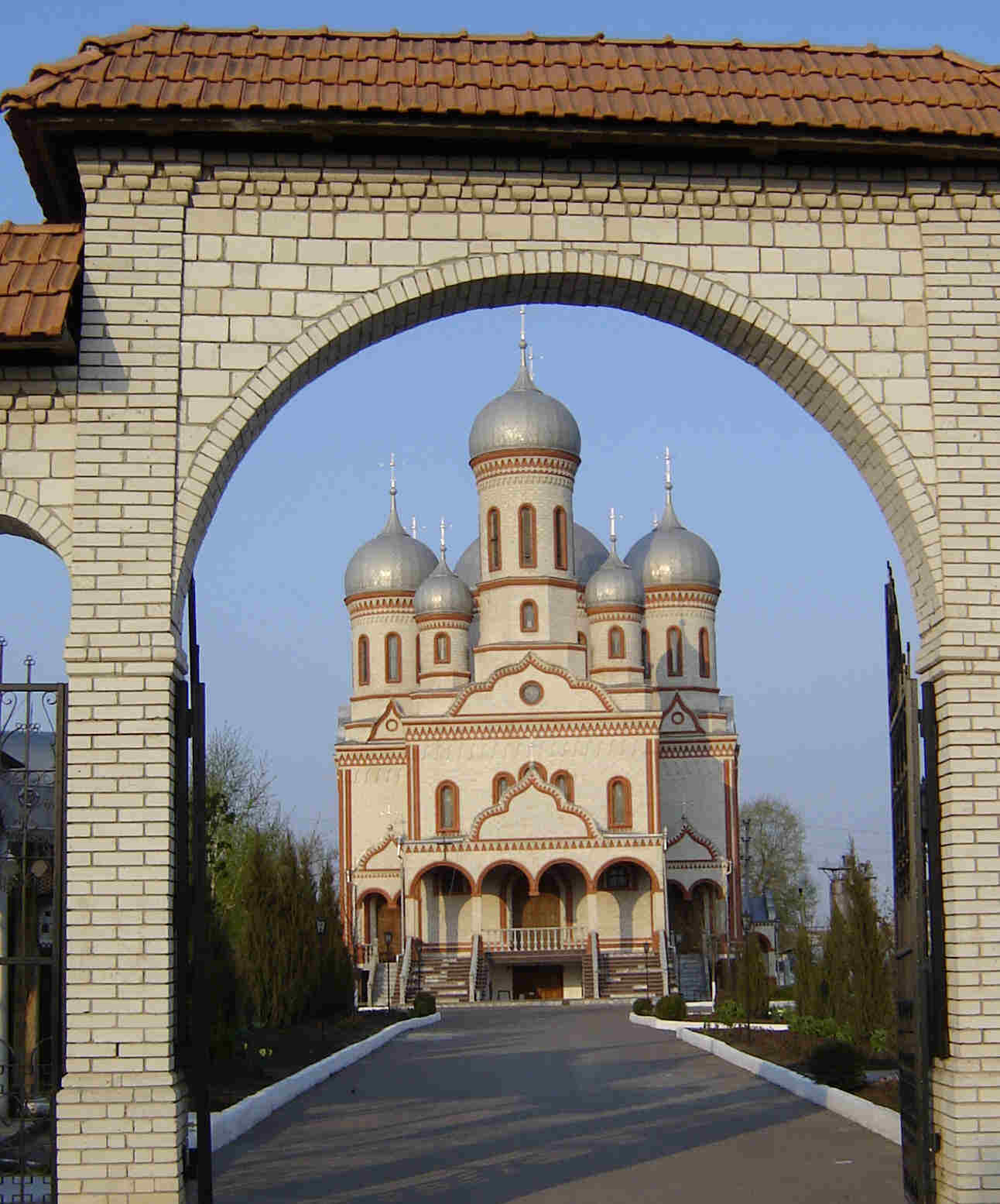 The Orthodox Church at Drochia.
The Orthodox Church at Drochia.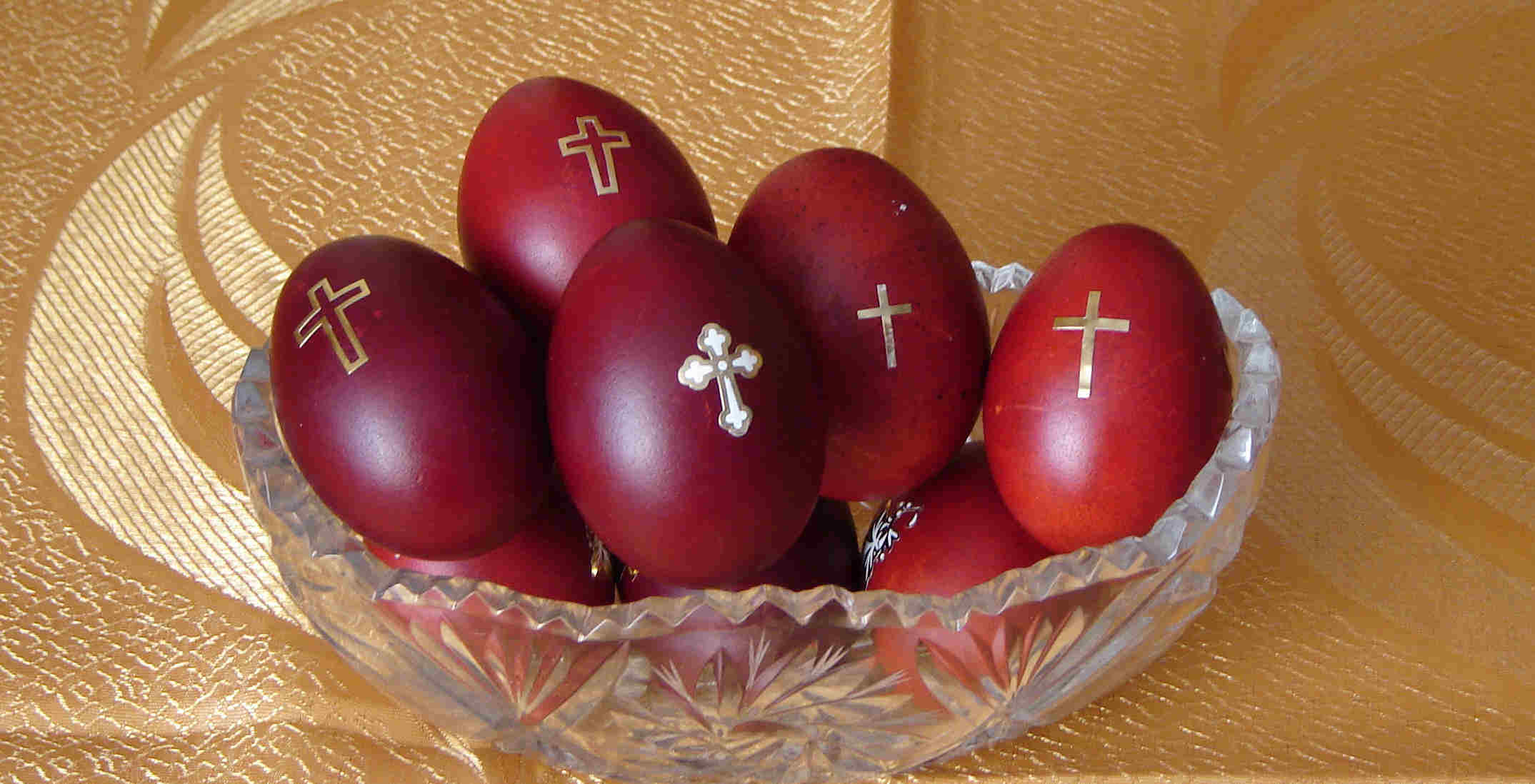 Easter eggs are usually dyed red and decorated here.
Easter eggs are usually dyed red and decorated here.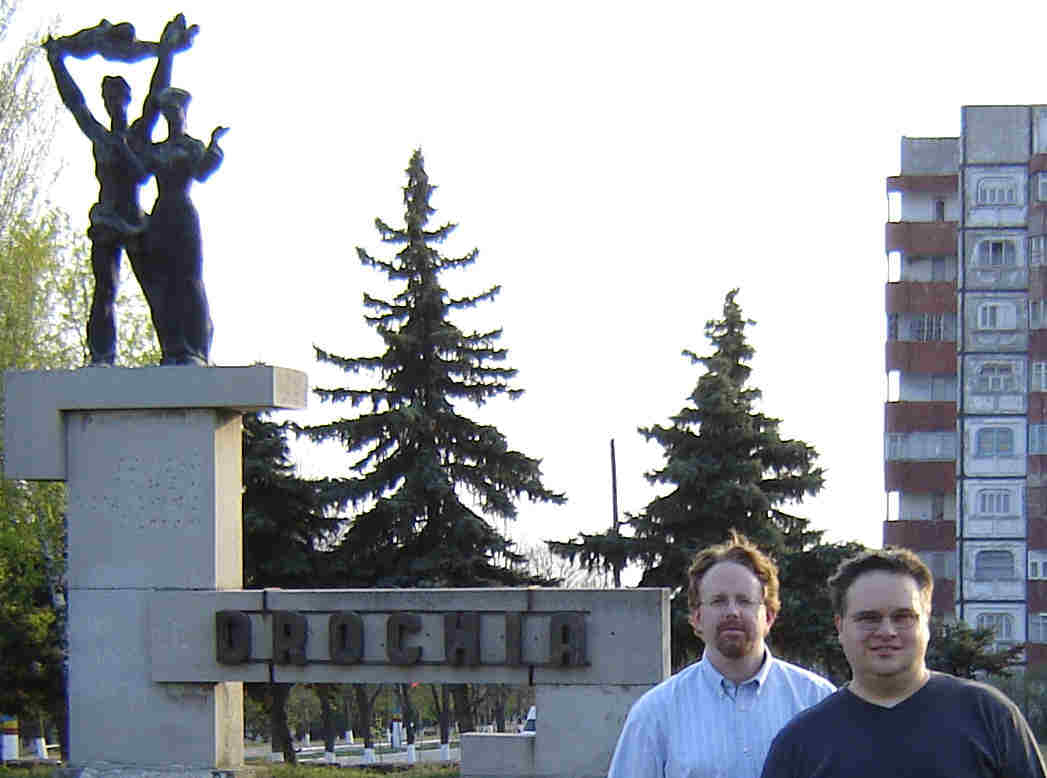 Me and Lee at the entrance to Drochia.
Me and Lee at the entrance to Drochia.
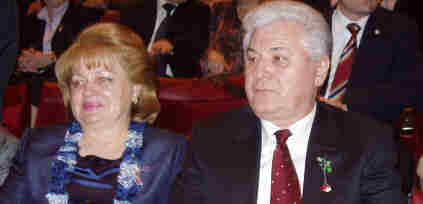 President Vladimir Voronin, of the Communist Party, is serving his
second term in office.
President Vladimir Voronin, of the Communist Party, is serving his
second term in office.
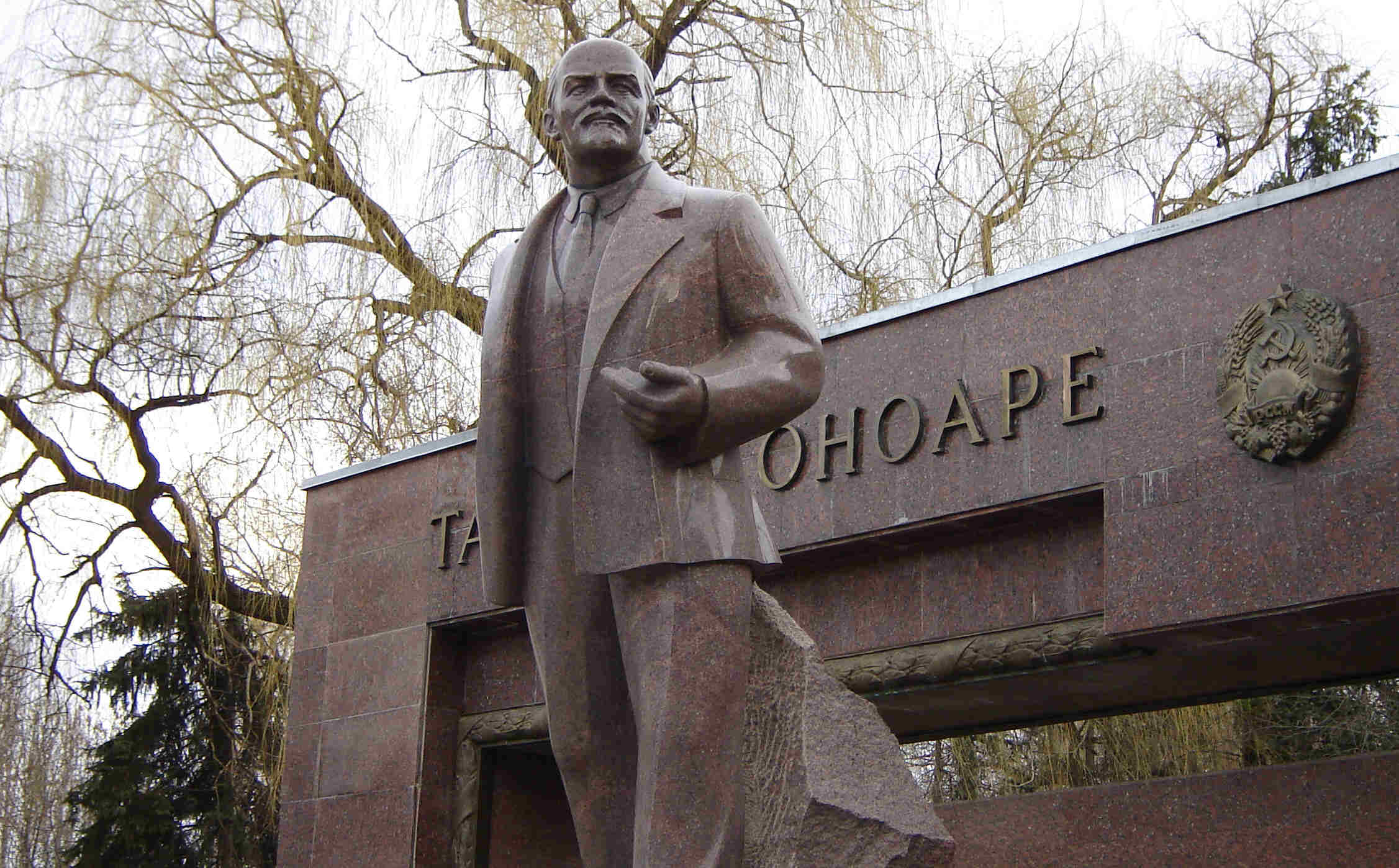 This statue of Lenin used to stand where Stefan cel Mare is today...a
similar statue is in the courtyard of the Communist Party Headquarters.
This statue of Lenin used to stand where Stefan cel Mare is today...a
similar statue is in the courtyard of the Communist Party Headquarters.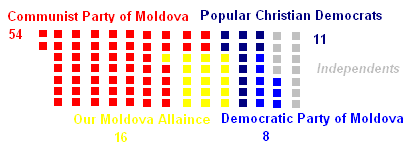 Schematic
diagram of the current makeup of the Moldovan Parliament.
Schematic
diagram of the current makeup of the Moldovan Parliament.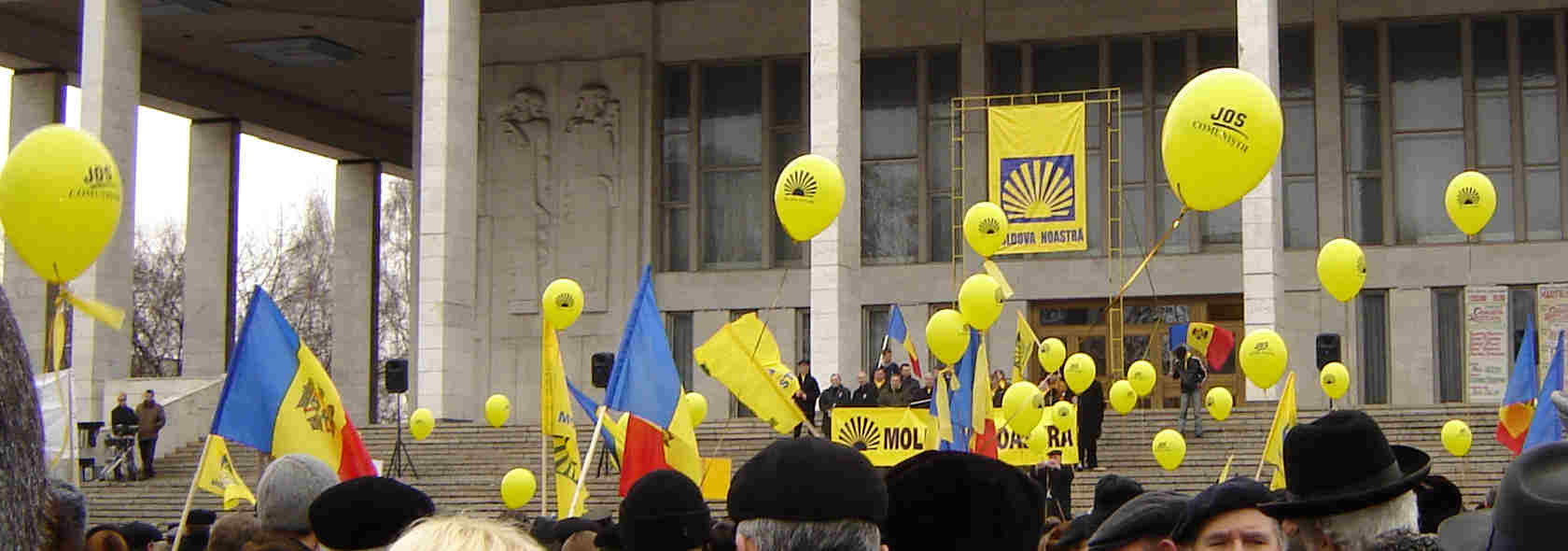 A rally on the steps of the Opera House for Moldova Noastra--a
collection of parties that forms the opposition to the government here.
A rally on the steps of the Opera House for Moldova Noastra--a
collection of parties that forms the opposition to the government here.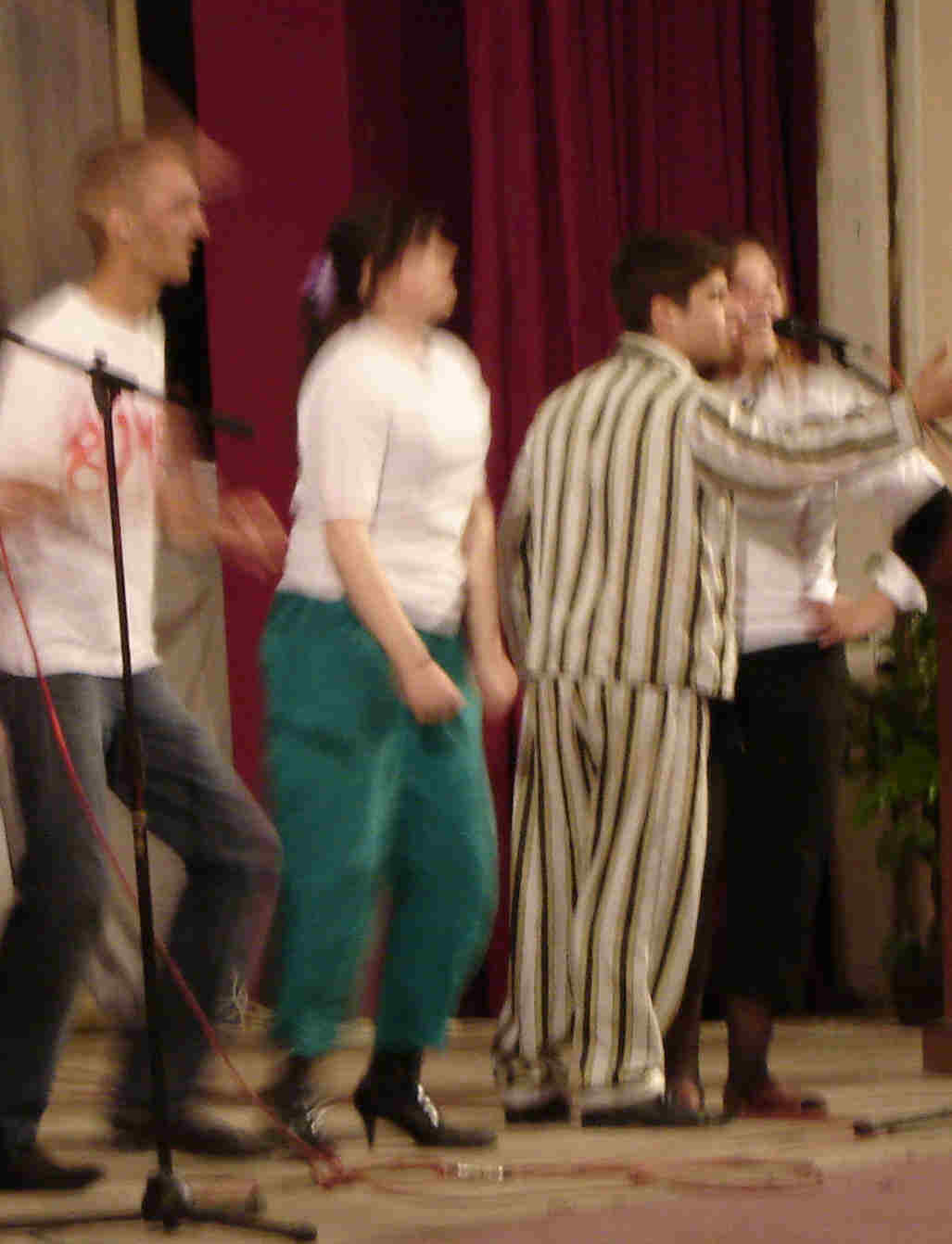
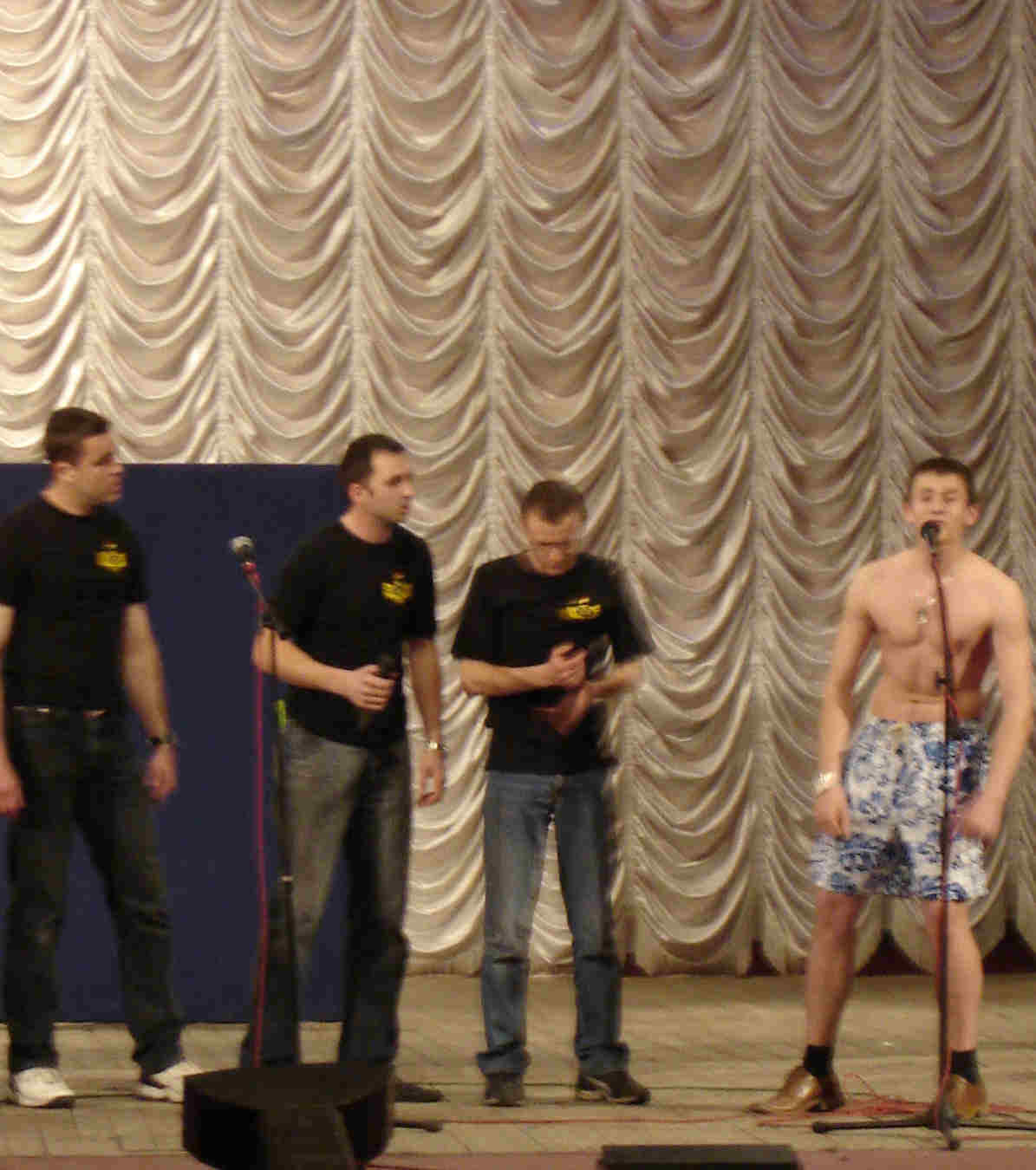 Students Competing a performance competition among the
universities--seems the one boy lost his shirt in work-travel program.
My student Silvia is leading the show (green pants).
Students Competing a performance competition among the
universities--seems the one boy lost his shirt in work-travel program.
My student Silvia is leading the show (green pants).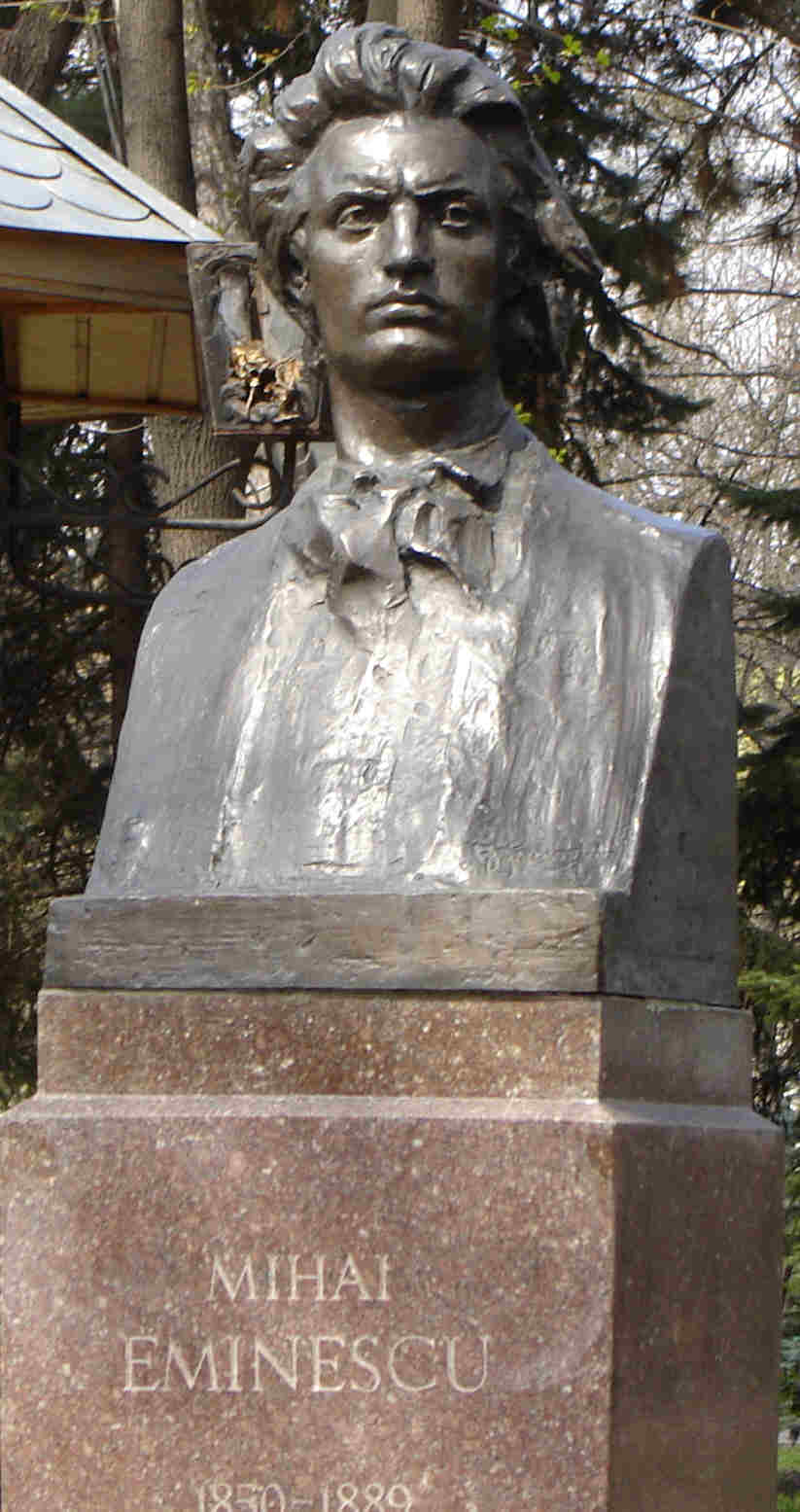
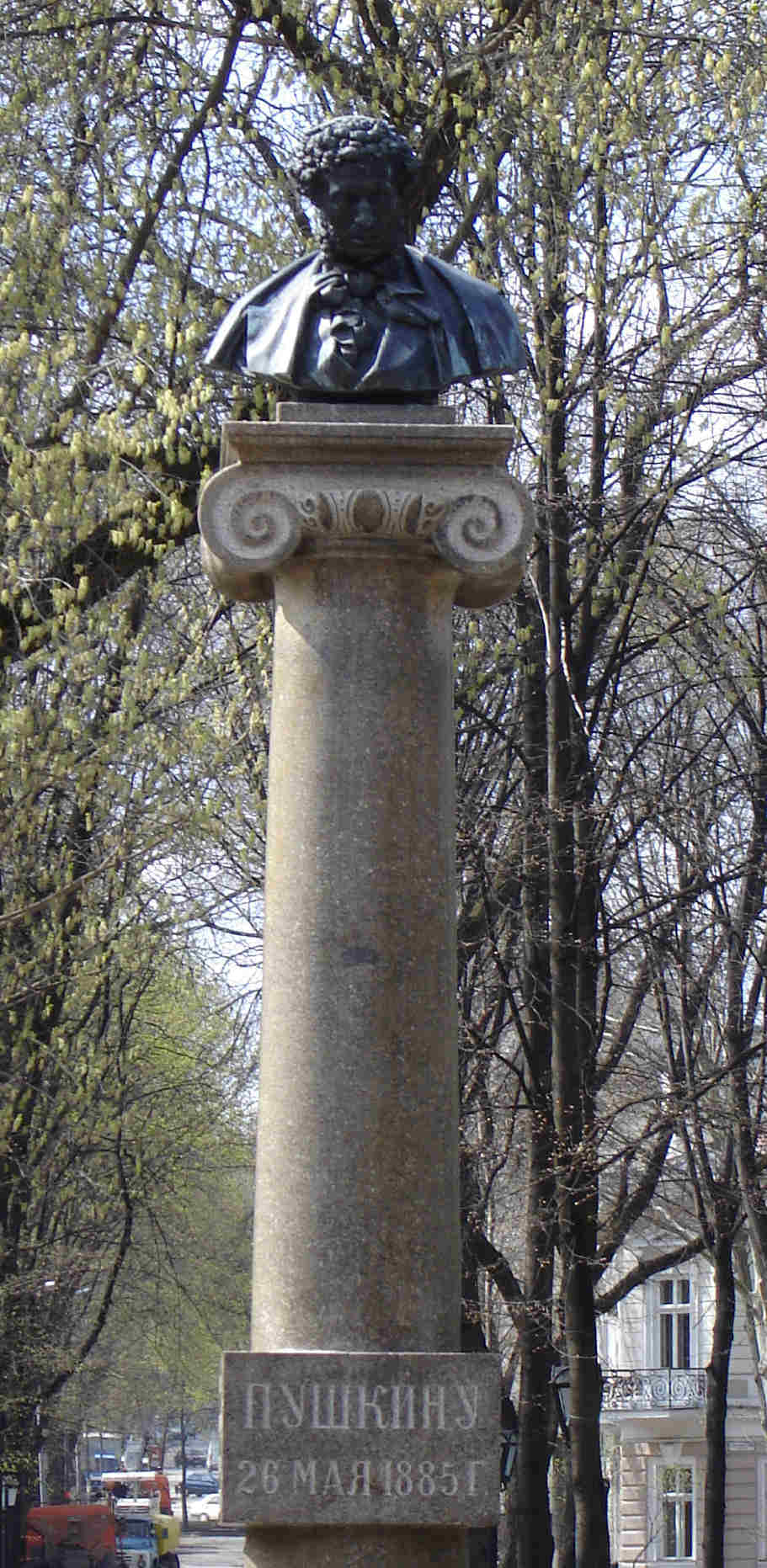 Statues
commemorating Mihai Eminescu and Aleksandr Pushkin in parcul Stefan cel
Mare (in Romanian the word "the" is replaced by the suffix" -ul"--for
masculine, singular nouns.
Statues
commemorating Mihai Eminescu and Aleksandr Pushkin in parcul Stefan cel
Mare (in Romanian the word "the" is replaced by the suffix" -ul"--for
masculine, singular nouns. 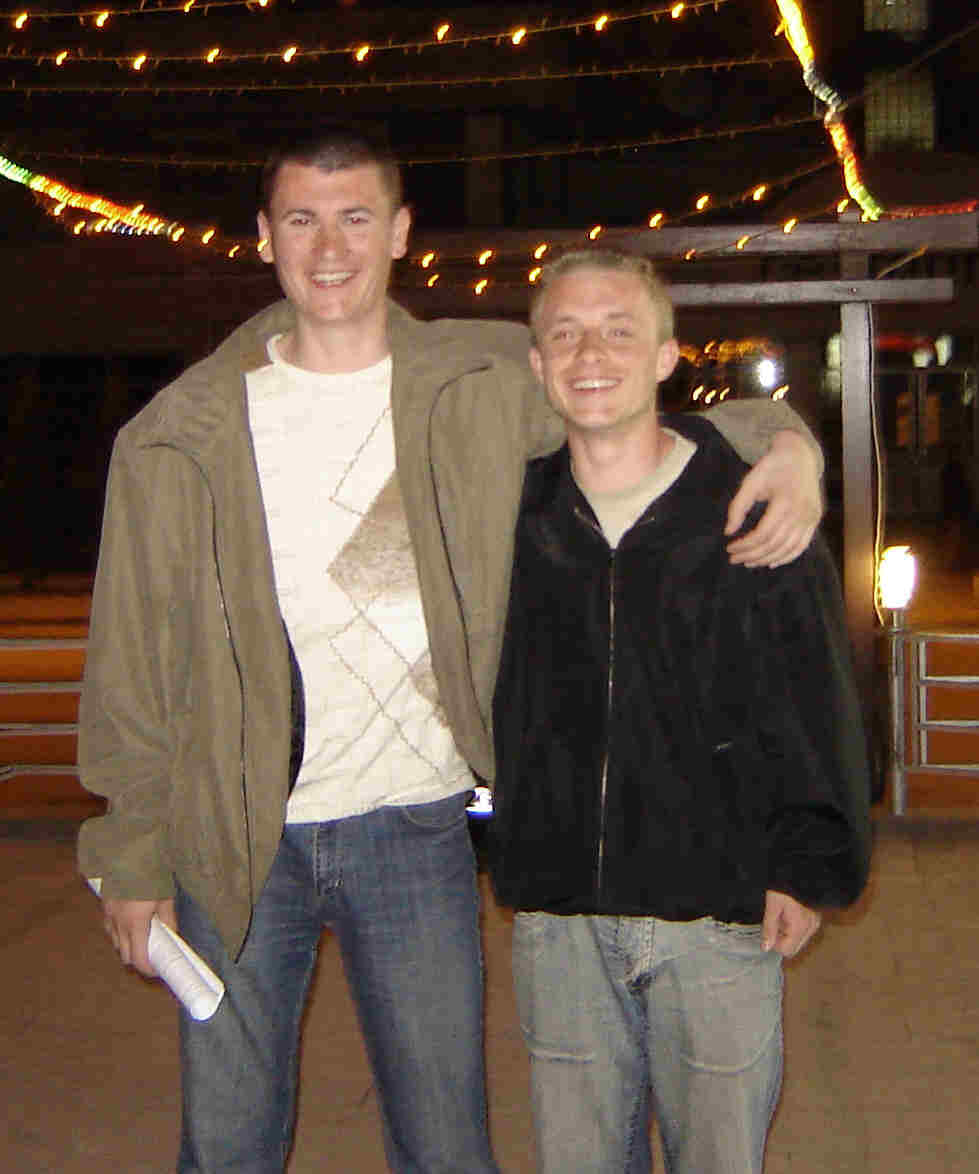 Sergei and Costia are headed to the States! They speak Romanian,
Russian, English, and Sergei speaks French and Costia speaks German.
I wish I were going to be in Atlanta to watch them get off the
plane--their eyes will be the size of "farfurie"--plates. Neither
have ever left Moldova before.
Sergei and Costia are headed to the States! They speak Romanian,
Russian, English, and Sergei speaks French and Costia speaks German.
I wish I were going to be in Atlanta to watch them get off the
plane--their eyes will be the size of "farfurie"--plates. Neither
have ever left Moldova before.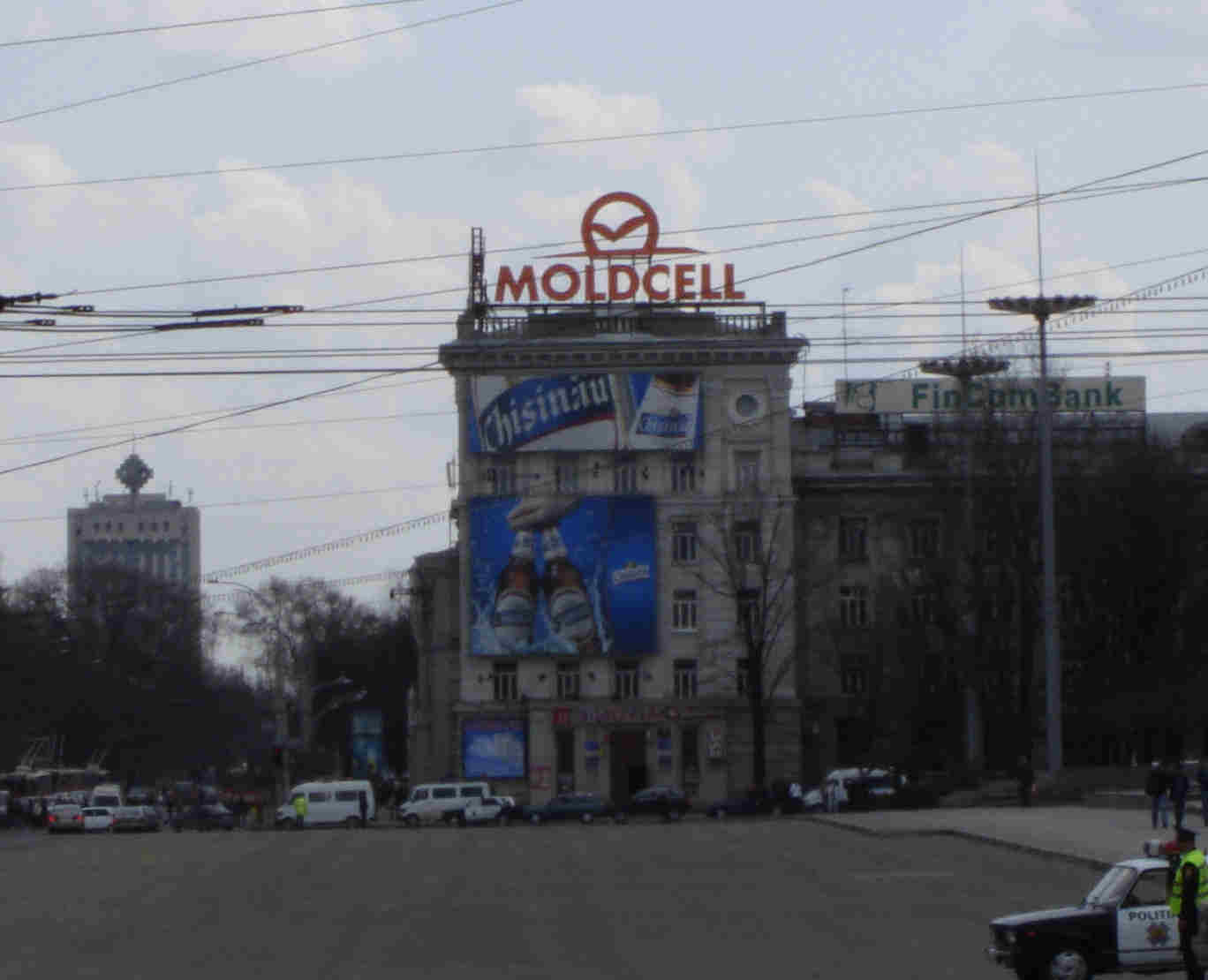 Center of Chisinau and Moldcell is one of the two largest cellular
providers.
Center of Chisinau and Moldcell is one of the two largest cellular
providers.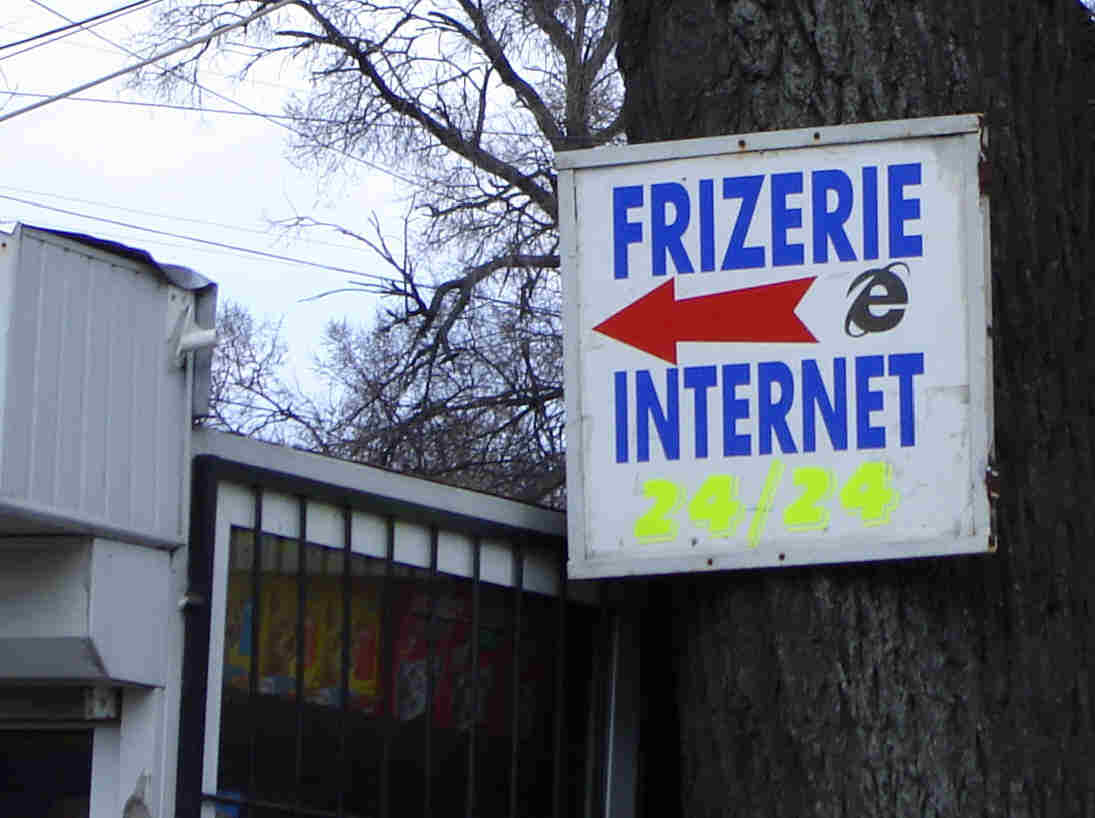
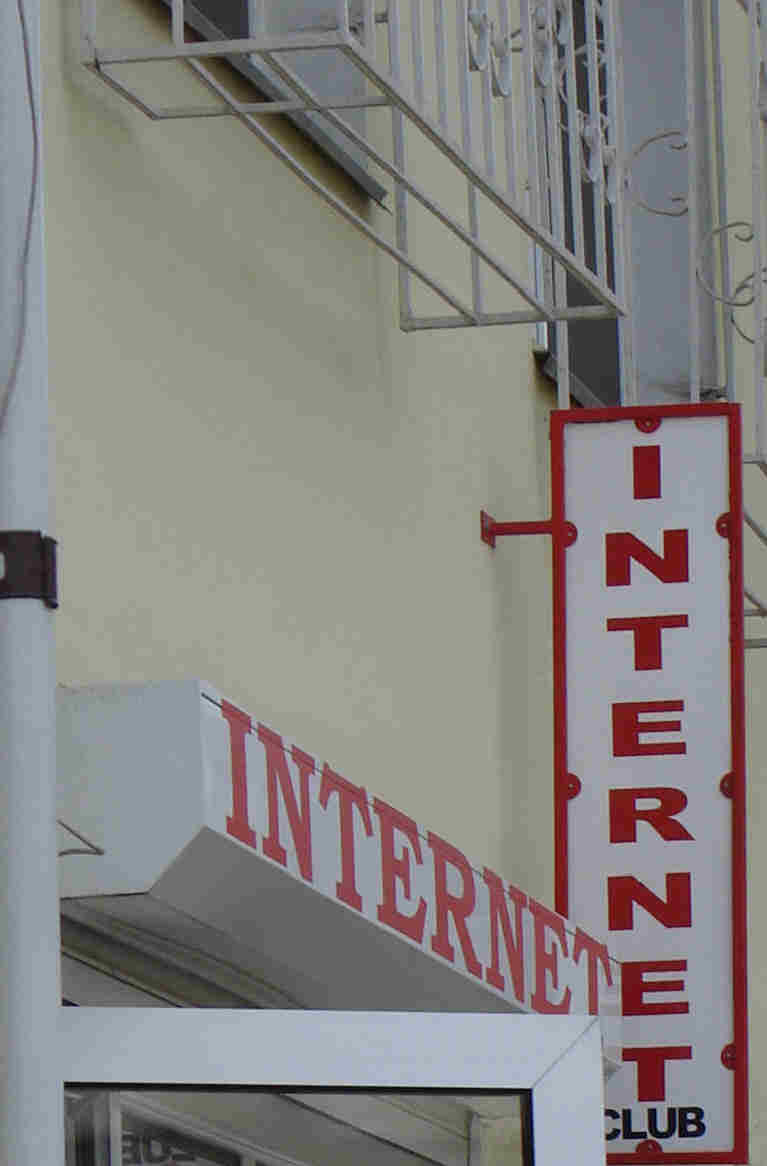
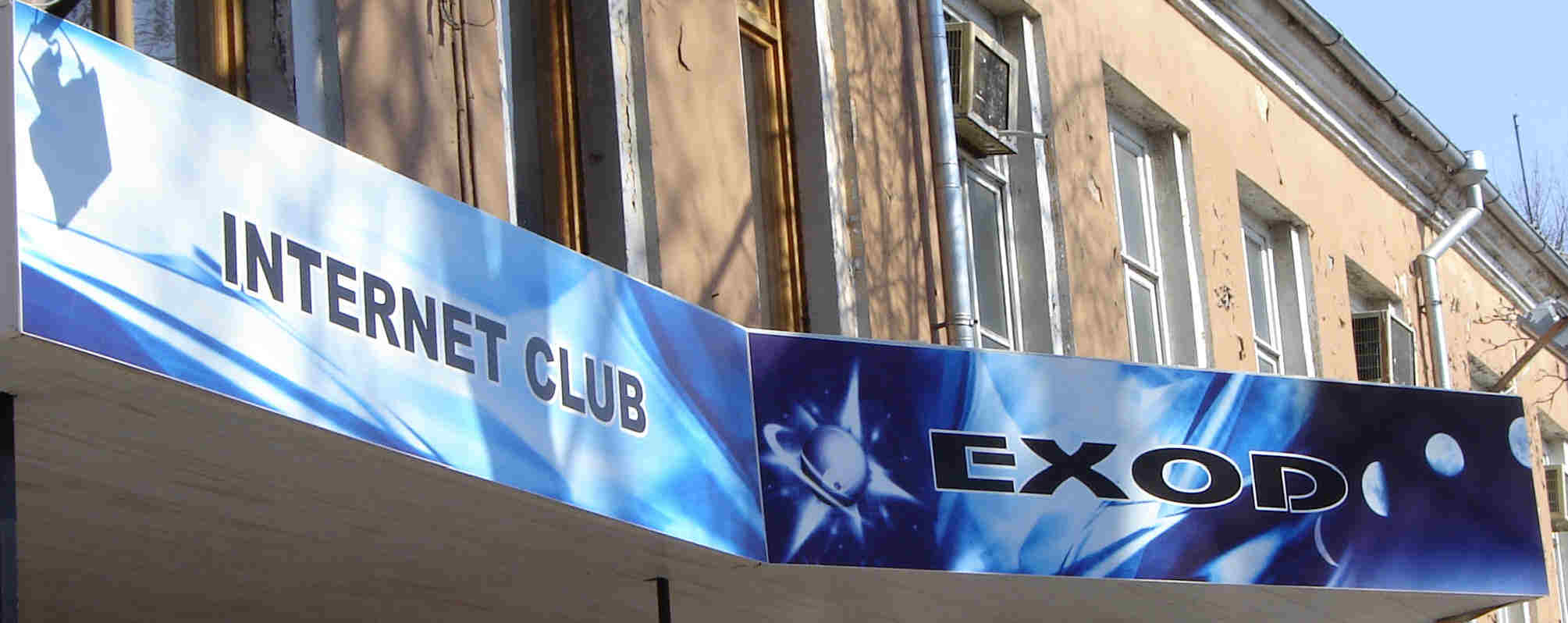 Internet
cafes or clubs are a recent rapid growth industry in Chisinau. One
advertises for Frizerie and Internet--hair salon and Internet--does it
get any better?
Internet
cafes or clubs are a recent rapid growth industry in Chisinau. One
advertises for Frizerie and Internet--hair salon and Internet--does it
get any better?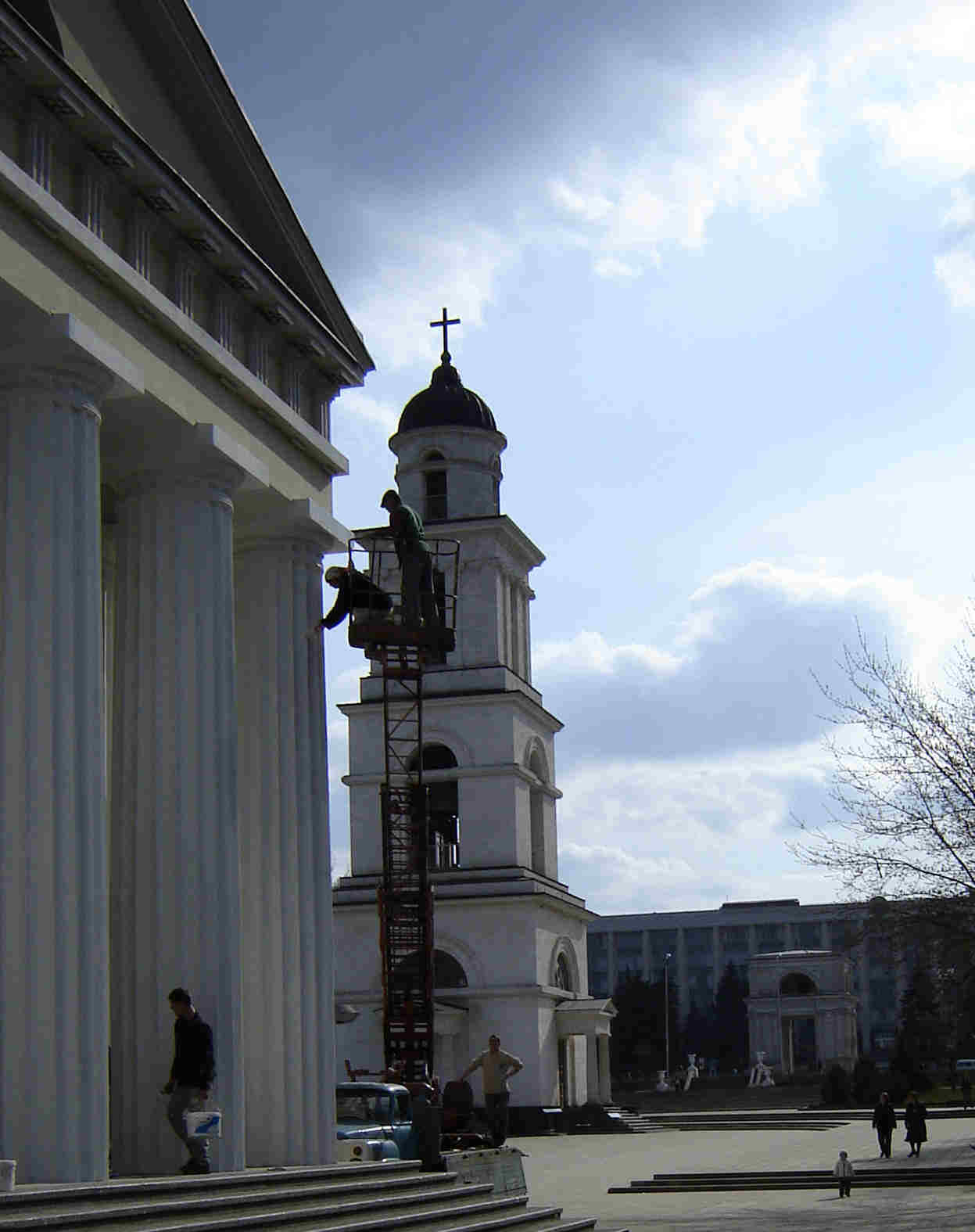 The big three...the Chisinau Cathedral, the Bell tower, and the Arc de
Triumf
The big three...the Chisinau Cathedral, the Bell tower, and the Arc de
Triumf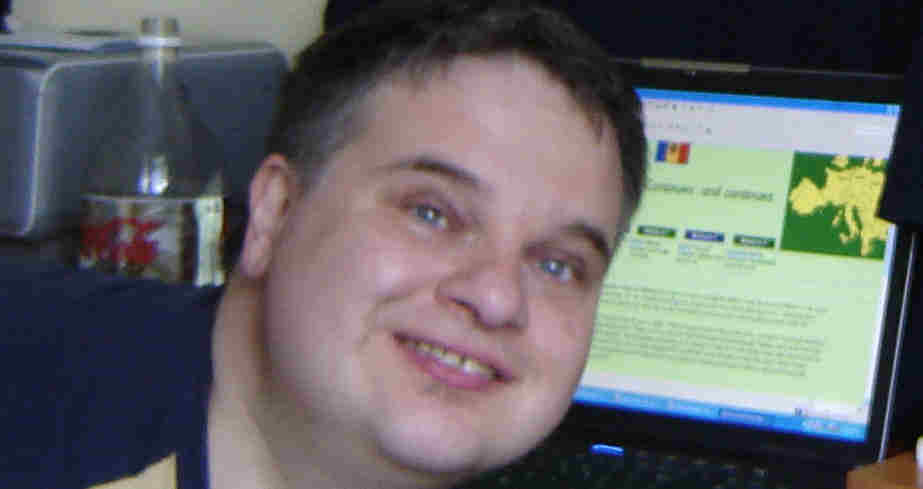 Yours truly working at my desk...I use dial-up!
Yours truly working at my desk...I use dial-up!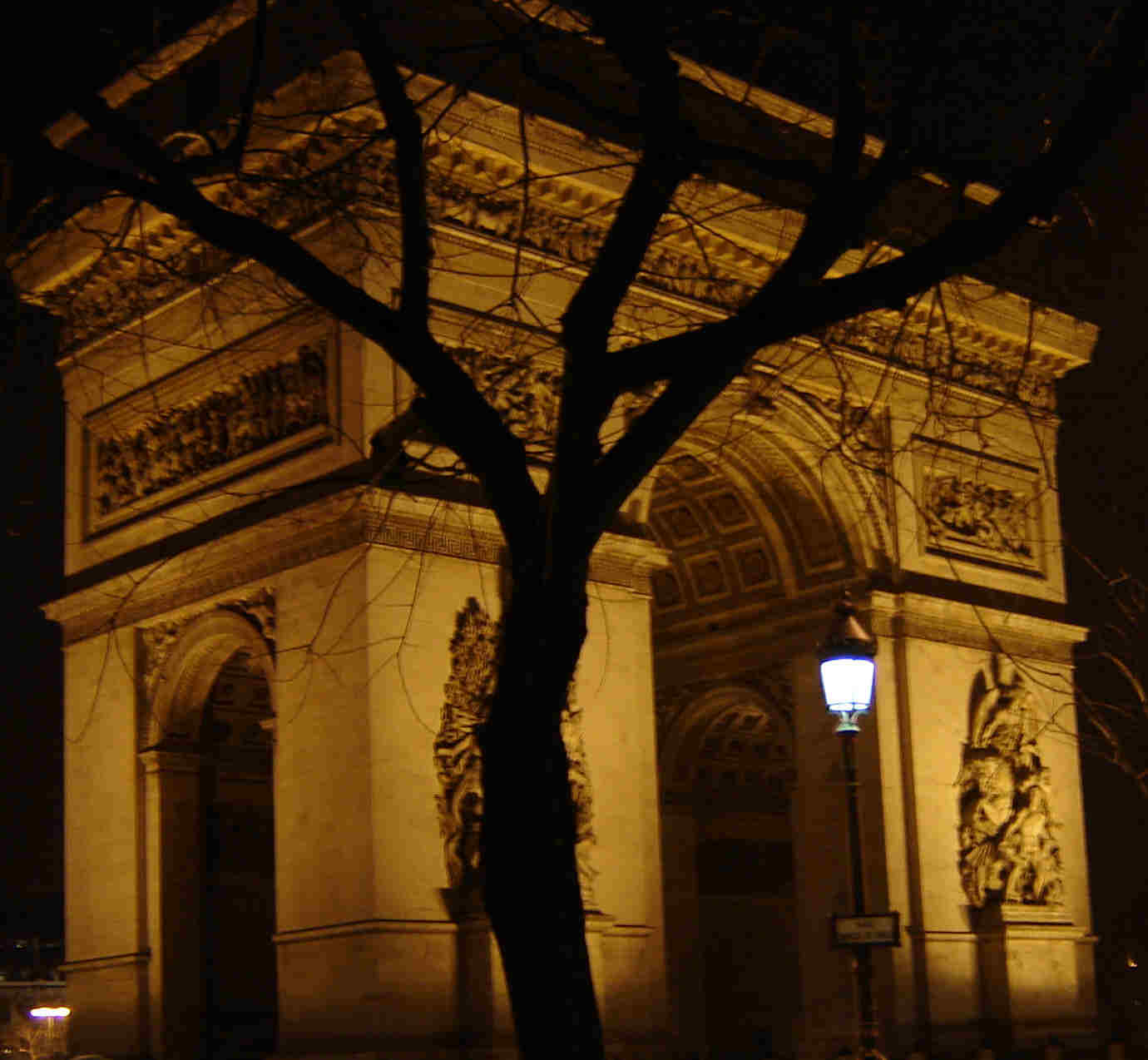 Did you know that there is an Arc de
Triumph in Chisinau?
Did you know that there is an Arc de
Triumph in Chisinau?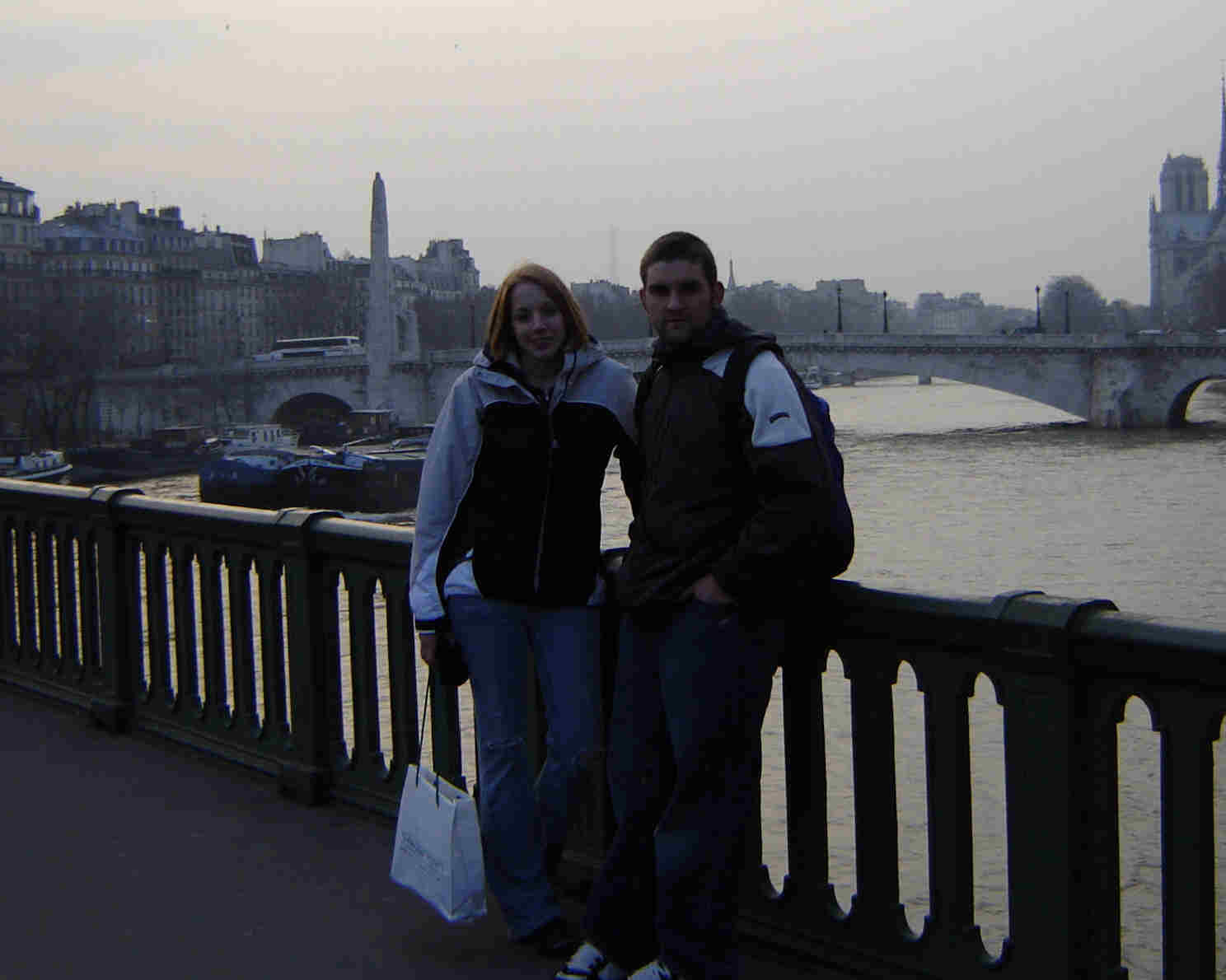 It was a pleasure to get a picture of my sister and her friend Ben by
the river.
It was a pleasure to get a picture of my sister and her friend Ben by
the river.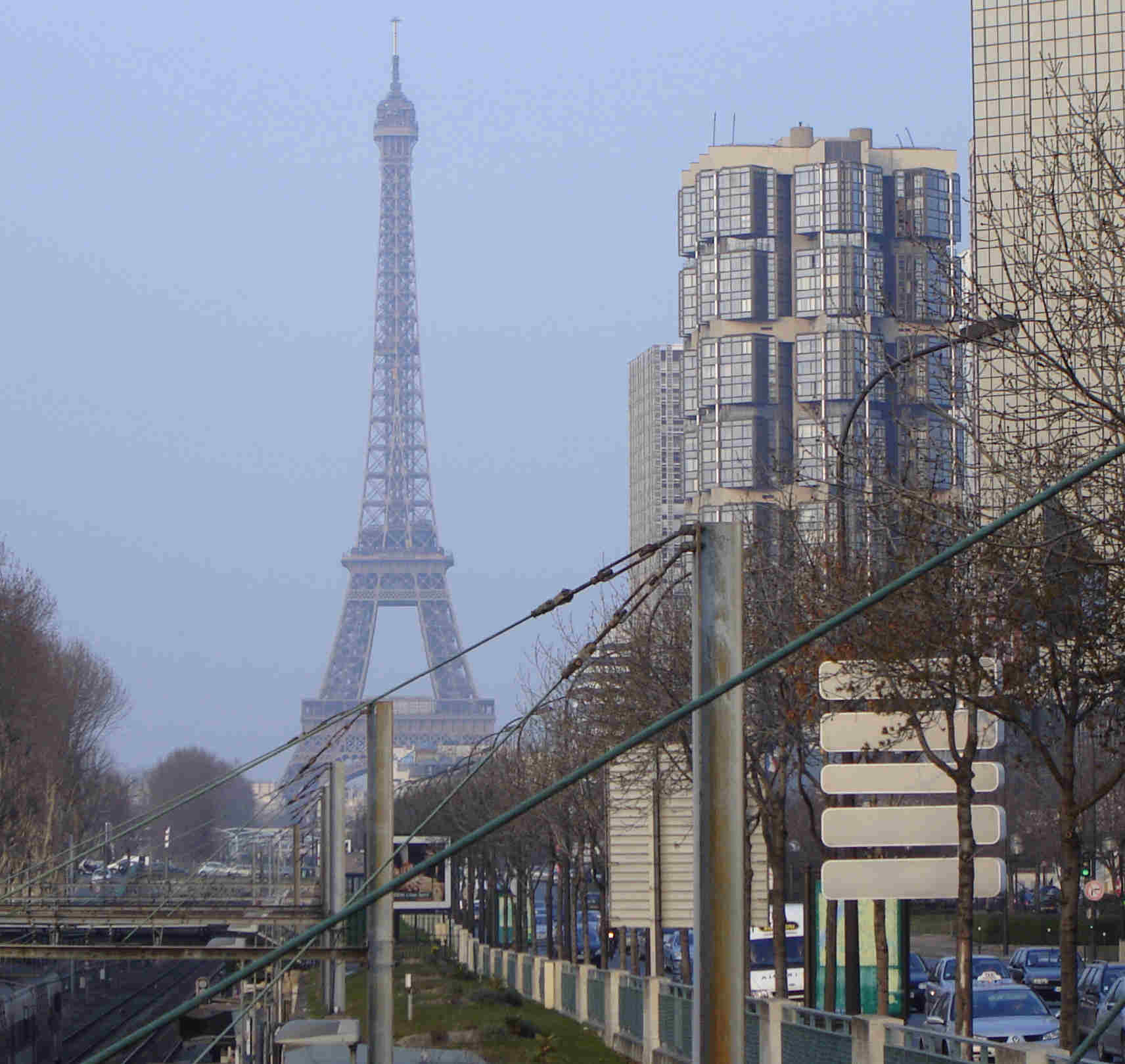 I am beginning to understand why some
call Chisinau the Paris of Moldova.
I am beginning to understand why some
call Chisinau the Paris of Moldova.